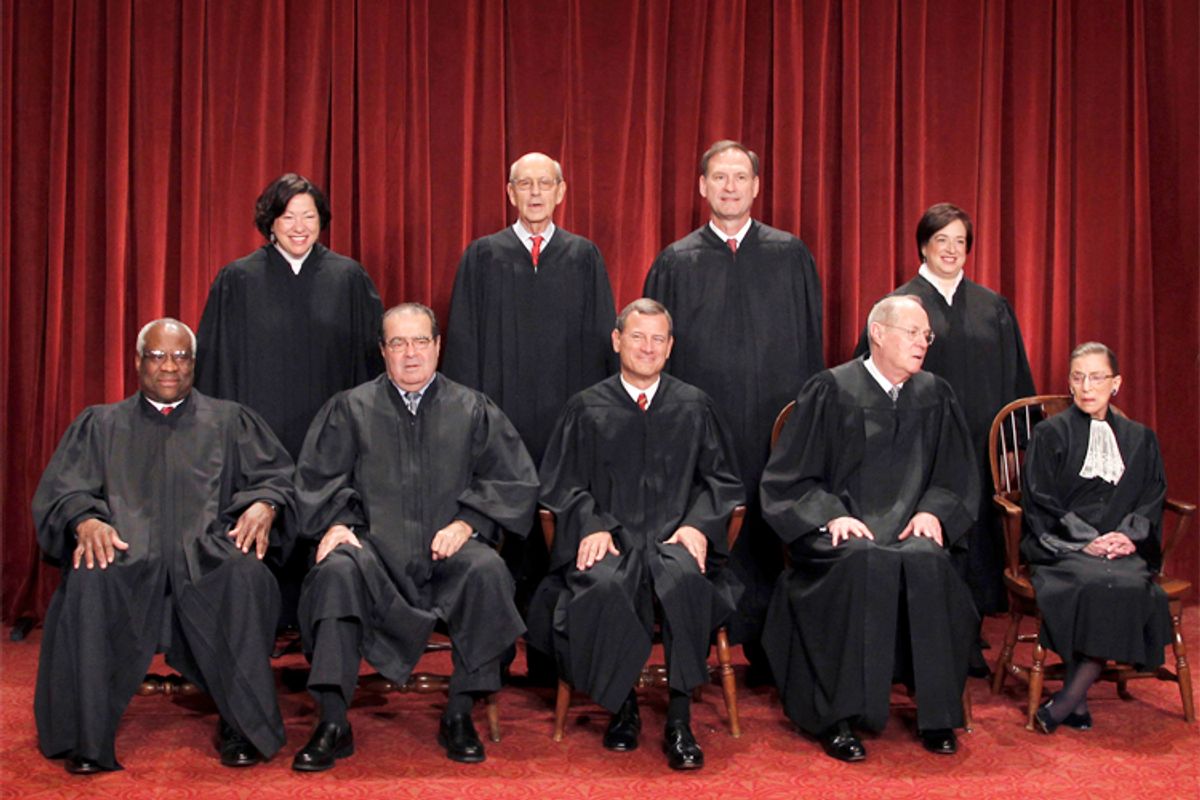The Affordable Care Act faces its gravest legal threat since the Supreme Court upheld the individual mandate in 2012.
That's because the U.S. Supreme Court has agreed to hear King v. Burwell, a case in which opponents of the health reform law are seeking to invalidate federal health insurance subsidies for the millions of Americans who live in the 36 states that did not set up their own Obamacare insurance exchanges. Seizing on language in the ACA that they assert restricts subsidies to "an Exchange established by the State," the Obamacare opponents brought the case before the Fourth Circuit Court of Appeal, which rejected the challenge. The Supreme Court's decision to take up the case is a worrying sign for the Obama administration, which had hoped that the Supreme Court would let the lower courts have the final say.
Earlier this year, three judges on the D.C. Circuit Court of Appeals, although the full court vacated the decision and plans to hear the case in December.
While the White House would much prefer not to have this matter before the High Court, its decision to hear King v. Burwell does not mean that subsidies for Americans who use the federal Obamacare exchange are inevitably doomed. It only requires four of the Court's nine justices to decide to hear a case.
Given that the authors of the ACA agree that the intent was never to restrict subsidies only to those on state exchanges, there's an easy legislative fix to the issue at the core of the case: clarifying language to ensure that Americans on the federal exchange aren't denied subsidies. But given the unyielding opposition of newly emboldened congressional Republicans to the health reform law, they're not going to take any measures that guarantee the law works as it's supposed to.



Shares